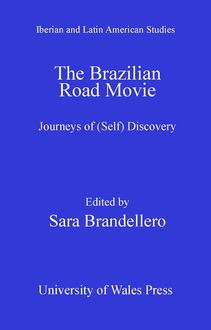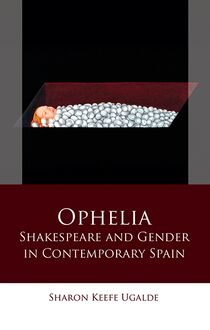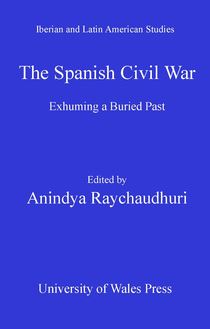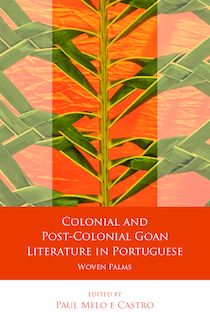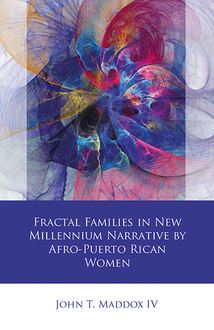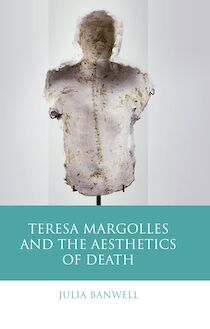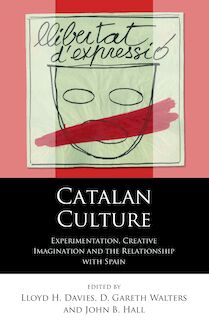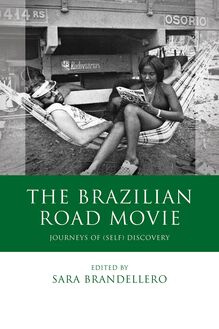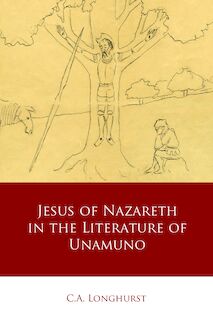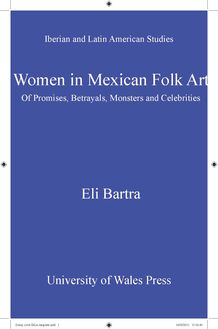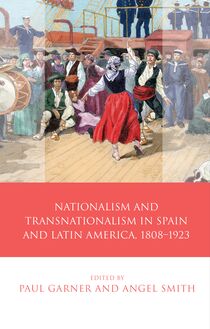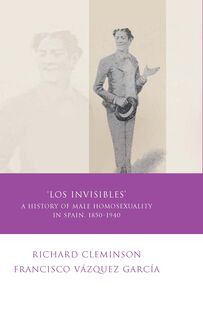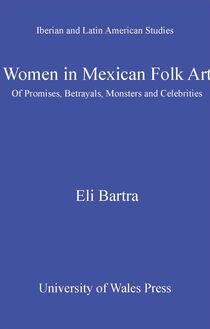Catalan Culture , livre ebook
113
pages
English
Ebooks
2018
Vous pourrez modifier la taille du texte de cet ouvrage
Obtenez un accès à la bibliothèque pour le consulter en ligne En savoir plus
Découvre YouScribe en t'inscrivant gratuitement
Découvre YouScribe en t'inscrivant gratuitement
113
pages
English
Ebooks
2018
Vous pourrez modifier la taille du texte de cet ouvrage
Obtenez un accès à la bibliothèque pour le consulter en ligne En savoir plus
Publié par
Date de parution
28 mars 2018
Nombre de lectures
0
EAN13
9781786832030
Langue
English
This volume presents studies of some of the key artistic manifestations in Catalonia in recent times, a period of innovation and experimentation, and addresses issues concerning literature, film, theatre and performance art. From the creation of a new popular theatre in the work of the Valencian playwright Rodolf Sirera, or the conception of landscape, myth and memory in the late work of the novelist Mercè Rodoreda and the urgency of memory and remembrance in the writings of Jordi Coca, the effects of censorship in Catalonia appear to have proved a spur and a challenge to writers. Desiring to occupy illegal spaces, performance groups have manifested both literally and metaphorically the international dimension of Catalan culture in the modern period, posed in the present volume by the instances of La Cubana and Els Joglars, and further evidenced in the cross-fertilization in the work of contemporary Catalan playwrights and filmmakers to foreground issues of national plurality and tensions arising between the periphery (Catalonia) and the centre (Spain and Castile).
Index
Tabula Gratulatoria
Series Editors’ Foreword
Notes on contributors
Introduction D. Gareth Walters
A ‘Natural History’ of Return: Landscape, Myth and Memory in the Late Work of Mercè Rodoreda - Helena Buffery
‘La totalidad de la obra se representará en perfecto castellano’: Censorship of Theatre in Catalonia after the Civil War - Michael Thompson
Rodolf Sirera’s El verí del teatre (The Audition): Creating Performance, Reality and Politics On Stage - John London
‘Antes eterna o negra que rota’: ¡Ay, Carmela! and the Mythic Unity of Spain - Dominic Keown
‘… And the Great Bird of War Flew Past with Its Wings Outstretched’: The Aesthetic Recreation of Trauma in Jordi Coca’s Sota la pols (2001) - Jordi Cornellà-Detrell
Unmasking the Mask: Controversia del Toro y el Torero (Els Joglars, 2006) and the Craft of Theatremaking - Lourdes Orozco
On Influence, Tradition and Other Anxieties: Some Dilemmas of the Contemporary Catalan Stage - Sharon G. Feldman
La Cubana in the Twenty-first Century: The Popular and the Political - Maria M. Delgado
Publié par
Date de parution
28 mars 2018
Nombre de lectures
0
EAN13
9781786832030
Langue
English
IBERIAN AND LATIN AMERICAN STUDIES
Catalan Culture
Series Editors
Professor David George (Swansea University)
Professor Paul Garner (University of Leeds)
Editorial Board
David Frier (University of Leeds)
Lisa Shaw (University of Liverpool)
Gareth Walters (Swansea University)
Rob Stone (University of Birmingham)
David Gies (University of Virginia)
Catherine Davies (University of London)
Richard Cleminson (University of Leeds)
Duncan Wheeler (University of Leeds)
Jo Labanyi (New York University)
Roger Bartra (Universidad Nacional Autónoma de México)
Other titles in the series
Catalan Cartoons: A Cultural and Political History
Rhiannon McGlade
Revolutionaries, Rebels and Robbers: The Golden Age of Banditry in Mexico, Latin America and the Chicano American southwest, 1850–1950
Pascale Baker
Teresa Margolles and the Aesthetics of Death
Julia Banwell
Galicia, A Sentimental Nation
Helena Miguelez-Carballeira
The Brazilian Road Movie
Sara Brandellero
The Spanish Civil War
Anindya Raychaudhuri
The Mexican Transition: Politics, Culture and Democracy in the Twenty-first Century
Roger Bartra
Adolfo Bioy Casares: Borges, Fiction and Art
Karl Posso
IBERIAN AND LATIN AMERICAN STUDIES
Catalan Culture
Experimentation, creative imagination and the relationship with Spain
Essays in honour of David George
Edited by
LLOYD HUGHES DAVIES, J. B. HALL AND D. GARETH WALTERS
© The Contributors, 2018
All rights reserved. No part of this book may be reproduced in any material form (including photocopying or storing it in any medium by electronic means and whether or not transiently or incidentally to some other use of this publication) without the written permission of the copyright owner. Applications for the copyright owner’s written permission to reproduce any part of this publication should be addressed to the University of Wales Press, 10 Columbus Walk, Brigantine Place, Cardiff CF10 4UP.
www.uwp.co.uk
British Library CIP
A catalogue record for this book is available from the British Library.
ISBN 978-1-78683-201-6
e-ISBN 978-1-78683-203-0
The right of the Contributors to be identified as authors of this work has been asserted in accordance with sections 77 and 79 of the Copyright, Designs and Patents Act 1988.
The publisher has no responsibility for the persistence or accuracy of URLs for any external or third-party internet websites referred to in this book, and does not guarantee that any content on such websites is, or will remain, accurate or appropriate.
Cover image: Protest placard in support of the freedom of expression of Albert Boadella and Els Joglars theatre company © Fabià Puigserver. MAE. Theatre institute of Barcelona.
Contents
David George: Two personal recollections
David George: Publications
Notes on Contributors
Introduction
D. Gareth Walters
A ‘Natural History’ of Return: Landscape, Myth and Memory in the Late Work of Mercè Rodoreda
Helena Buffery
‘La totalidad de la obra se representará en perfecto castellano’: Censorship of Theatre in Catalonia after the Civil War
Michael Thompson
Rodolf Sirera’s El verí del teatre ( The Audition ): Creating Performance, Reality and Politics On Stage
John London
‘Antes eterna o negra que rota’: ¡Ay, Carmela! and the Mythic Unity of Spain
Dominic Keown
‘… And the Great Bird of War Flew Past with Its Wings Outstretched’: The Aesthetic Recreation of Trauma in Jordi Coca’s Sota la pols (2001)
Jordi Cornellà-Detrell
Unmasking the Mask: Controversia del Toro y el Torero (Els Joglars, 2006) and the Craft of Theatremaking
Lourdes Orozco
On Influence, Tradition and Other Anxieties: Some Dilemmas of the Contemporary Catalan Stage
Sharon G. Feldman
La Cubana in the Twenty-first Century: The Popular and the Political
Maria M. Delgado
Tabula Gratulatoria
David George: Two personal recollections
In 1966 I was appointed as an Assistant Lecturer in Spanish in the then Department of Romance Studies at University College Swansea headed by the distinguished Racinian, Roy Knight. With the aid of a part-time conversational assistant, Margarita Barker, Spanish was established as a Part One course only, the numbers of undergraduates being naturally limited to those who came in with A-level Spanish and intending to do, say, French for Part Two of their BA. After a couple of years, a Part Two General Degree in Spanish (later Joint Honours) was created and additional staffing was needed. I had met David George in 1969 at the first University of Wales Inter-Collegiate Spanish Conference held at Gregynog Hall, Powys, and organized by Norman Shergold who had recently come to occupy the Chair in Cardiff. Among the various contributions was a joint analysis of Antonio Machado’s poem, ‘A orillas del Duero’, impressively delivered by three Cardiff final-year undergraduates, D. Gareth Walters, Pamela Phillips (later to be Pamela Bacarisse) and David himself; all would subsequently go on to have distinguished academic careers. I was glad when, a few years later, David, then near to completing his PhD, was appointed first to a tutorship in Swansea and then, when Armel Diverres became Head of Romance Studies, to a lectureship. David proved to be an ideal friend and colleague, versatile, cheerful, indefatigable and always easy to get on with. Apart from language teaching, we both needed to lecture and give tutorials on the whole range of Hispanic literature – David, for instance, offering El Conde Lucanor , to the Medieval Texts syllabus: in those days academics were, of course, accustomed to teaching outside their specialist areas of research interest. In the early 1980s two more lecturers were appointed, one of whom, Paul Garner, would later occupy the Chair in Leeds. This eased the burden on David and myself and we were able to devote more time to research and to broadening the undergraduate syllabus. David was instrumental in developing Catalan with the support of his wife, Antònia Babí, originally appointed as a Spanish tutor. When Derek Gagen came from Manchester to head the newly created Department of Hispanic Studies in the early 1990s, David had the stimulus of a colleague whose research interests were close to his own; the subject now flourished: sabbatical leave became possible, new appointments were made, including Lloyd Hughes Davies who had first come to Swansea to do his PhD on the Uruguayan writer, Juan Carlos Onetti, after completing his BA at Bristol, and who has since made a name for himself as a leading Latin Americanist. David was by now becoming well-known for his work on modern Spanish and Catalan drama, and we were all pleased by his appointment to a Senior Lectureship, a Readership and eventually a Personal Chair: he continued to be a stimulating and effective lecturer and tutor who always won the respect and affection of his pupils.
Under Derek’s benevolent guidance, the Department was always a pleasant place in which to work and remained so when, after his retirement, David took over and Gareth joined us from Exeter, the wheel thus turning full circle after many years. But my abiding memory is of that early time when Spanish at Swansea was represented just by David and myself: not long after he obtained his lectureship, our final-year undergraduates presented us shortly before Christmas with a parcel which contained two bottles of sherry and was addressed simply to ‘Don Quijote and Sancho Panza’. Perhaps fittingly, they did not indicate which of us was supposed to be which but it was pleasing for us to be associated with that immortal and indissoluble duo, each in his different way a model of wit and wisdom. I shall always remain grateful to David for exemplifying both in his inimitably friendly and good-natured manner over so many years.
J. B. Hall †
David George was born and bred in the Rhondda, and his sense of hospitality and positive outlook on life are traits that are readily attributed to the people of the Valleys. He entered the Rhondda County Grammar School for Boys, Porth (better known simply as Porth County) shortly before his eleventh birthday in September 1959. With hindsight, one of the most important decisions of his life was made a couple of years later when he opted to study Spanish. The language was taught by Georges Rochat, a Swiss expatriate by then long-settled in the Rhondda, who has a claim to be the most influential teacher of Spanish in these islands at school level, as a roll-call of Porth alumni who passed through his hands reveals: David was an exact contemporary of mine; he was immediately preceded by Brian Powell and Robert Havard; from an earlier generation, Jack Metford and Gareth Alban Davies had trodden the same path; while the writer Gwyn Thomas, for some years a Spanish teacher at a school in Barry, had also been a pupil of Rochat. Like others, David had been sufficiently impressed and nourished by Rochat, whose broad cultural interests and musical knowledge had opened the eyes of many of his charges to whole new worlds of experience, beyond as well as including Spain. In due course David entered the University College of South Wales and Monmouthshire, later to be designated as Cardiff University. I was again a fellow-student of his, while Robert Havard, who had just started his doctoral studies, was a part-time tutor. This was a department that at that time was headed by Stephen Reckert and where José María Aguirre, Lorna Close, Alberto Hauf and Alexandre Pinheiro Torres were then teaching. Reckert had established an ambitious programme of study that included Portuguese and Catalan as well as the whole range of Spanish literature. Indeed, the Cardiff course seemed, more than any other perhaps, designed as a preparation for university teachers. From David’s cohort, three of the six students progressed to academic careers: David himself, Pamela Bacarisse (then Phillips), and myself. In Cardiff in the 1960s, language degrees were of three yea
